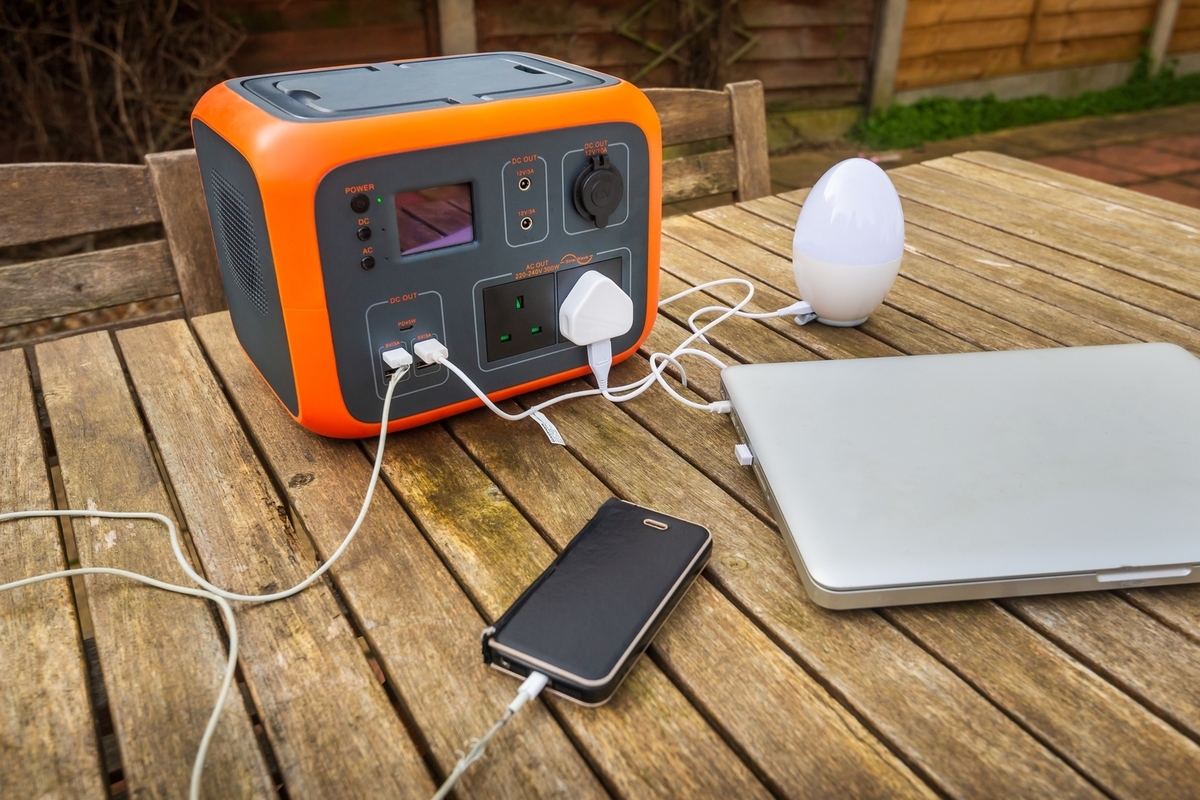Portable Solar Generators: A Comprehensive Guide to Off-Grid Power Solutions
In today’s increasingly energy-conscious world, the demand for sustainable and portable power solutions has surged. Among the most popular alternatives to traditional fuel-powered generators are portable solar generators . These eco-friendly devices offer a clean, reliable source of energy for outdoor enthusiasts, emergency preparedness, and off-grid living. With advancements in solar technology, these generators have become more efficient, user-friendly, and accessible to a wide range of consumers.
This article will provide a detailed overview of portable solar generators, discussing their features, benefits, and applications, as well as key factors to consider when purchasing one.

What is a Portable Solar Generator?
A portable solar generator is a device that converts sunlight into electricity, which can then be used to power various electrical appliances. These generators typically consist of three main components:
- Solar Panel(s) : These capture sunlight and convert it into direct current (DC) electricity.
- Battery : The electricity generated by the solar panels is stored in a rechargeable battery for later use.
- Inverter : The stored DC electricity is converted into alternating current (AC), which is used by most household devices.
Portable solar generators are designed to be compact and lightweight, making them easy to transport for various outdoor activities such as camping, hiking, or tailgating, as well as for emergency backup power.
How Portable Solar Generators Work
Portable solar generators operate through a simple yet effective process:
- Solar Energy Capture : The solar panels capture sunlight and convert it into electricity.
- Energy Storage : The energy is stored in an integrated battery system, allowing you to use it at any time, even when the sun isn’t shining.
- Powering Devices : The inverter converts the DC electricity into AC, which can then be used to power devices like phones, laptops, lights, and small appliances.
Many models come with multiple output ports, including USB, DC, and AC outlets, allowing users to charge and power a wide variety of devices simultaneously.
Key Features of Portable Solar Generators
When choosing a portable solar generator, there are several important features to consider:
1. Battery Capacity
The capacity of the battery is one of the most important factors to consider. A higher battery capacity (measured in watt-hours, or Wh) will allow the generator to store more energy, which means it can power devices for a longer period. Typical portable solar generators have capacities ranging from 150 Wh to 1,000 Wh or more.
2. Solar Panel Efficiency
The efficiency of the solar panels determines how quickly they can recharge the battery. Higher efficiency panels capture more sunlight, which translates to faster charging times. It’s important to consider the size and wattage of the solar panel(s) included with the generator.
3. Portability
Portability is a key advantage of solar generators. Look for a model that is lightweight and comes with an ergonomic handle or wheels for easy transport. While larger units may offer more power, they are typically bulkier and heavier.
4. Output Ports
The more output ports a solar generator has, the more devices you can charge or power at the same time. Many portable solar generators come with multiple AC outlets, DC outlets, and USB ports. Some models even include car charging ports for additional convenience.
5. Charging Time
The charging time refers to how long it takes to recharge the generator’s battery from empty to full. Charging times can vary depending on the size of the solar panels and the amount of sunlight available. Some models allow for dual charging, which can significantly reduce recharge times.
6. Durability and Weather Resistance
Since portable solar generators are often used outdoors, durability and weather resistance are essential. Look for models that are built to withstand harsh conditions, including rain, dust, and extreme temperatures.
7. Noise Level
One of the major advantages of solar generators over traditional fuel-powered generators is their quiet operation. Solar generators are virtually silent, making them ideal for peaceful outdoor activities or when you need to power devices without disturbing others.
Applications of Portable Solar Generators
1. Outdoor Activities
Whether you’re camping, hiking, boating, or tailgating, a portable solar generator is a perfect companion for off-grid adventures. It allows you to power lights, phones, GPS devices, and small appliances without the need for traditional power sources.
2. Emergency Backup Power
In the event of a power outage, a solar generator can provide a reliable backup power source. It can be used to keep essential devices such as medical equipment, phones, and lights running until power is restored.
3. RV and Van Life
For those who enjoy van life or travel in RVs, a portable solar generator can supply power for small appliances, laptops, and lights while staying off-grid. It’s a convenient way to avoid relying on campground hookups or noisy gas generators.
4. Off-Grid Living
Solar generators are an excellent solution for individuals living in remote areas where access to the electrical grid may be limited. They can provide a consistent and renewable power source for essential household devices and appliances.
Top Portable Solar Generators
To help you make an informed decision, here’s a comparison of some of the best portable solar generators available today:
| Model | Battery Capacity (Wh) | Solar Panel Efficiency | Output Ports | Charging Time | Weight |
|---|---|---|---|---|---|
| Model A | 500 Wh | 20% | 2 AC outlets, 2 USB, 1 DC | 6-8 hours (solar), 2 hours (AC) | 12 lbs |
| Model B | 1000 Wh | 22% | 3 AC outlets, 3 USB, 1 car charger | 10 hours (solar), 3 hours (AC) | 20 lbs |
| Model C | 300 Wh | 18% | 1 AC outlet, 2 USB | 4-6 hours (solar), 1.5 hours (AC) | 7 lbs |
| Model D | 2000 Wh | 25% | 4 AC outlets, 4 USB, 1 DC | 8 hours (solar), 4 hours (AC) | 40 lbs |
Note: Charging times can vary depending on the sunlight intensity and solar panel orientation.
Benefits of Portable Solar Generators
- Eco-Friendly : Solar generators use renewable energy from the sun, reducing reliance on fossil fuels and minimizing your carbon footprint.
- Low Maintenance : Unlike fuel-powered generators, solar generators require minimal maintenance. There are no moving parts, and no oil or gas is needed.
- Cost-Effective : After the initial investment, solar generators are essentially free to operate. You won’t need to purchase fuel, and many models come with a long lifespan.
- Quiet Operation : Solar generators operate silently, making them perfect for peaceful outdoor environments and avoiding noise pollution.
Portable solar generators offer a reliable, eco-friendly solution for those seeking off-grid power. With advancements in solar technology, these devices have become more powerful, efficient, and accessible. Whether you need a portable power source for outdoor adventures, emergency backup, or off-grid living, a solar generator provides a sustainable and quiet alternative to traditional generators.
When choosing a portable solar generator, consider factors such as battery capacity, solar panel efficiency, portability, and output ports to ensure the model meets your specific needs. As renewable energy becomes more widespread, portable solar generators are likely to continue growing in popularity as an essential tool for outdoor enthusiasts and those in need of reliable, sustainable power.















